Book Reviews by Genre: Christian
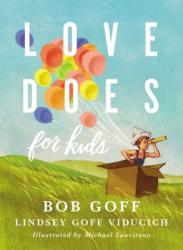
Wow, wow, wow, wow. This book is absolutely incredible! Bob Goff takes you through many of his life stories. And wow...he has had such an incredible life! From saving kids from human traffickers to hiking Half Dome in a snowstorm, to flipping his Jeep, his stories are revealing of his zeal and compassion for people and Jesus.
He encaptures what it truly means to live and how to navigate life while praising the Lord. I highly recommend this book because it is one of the most powerful and rewarding books I have ever read!
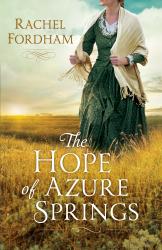
A tragic circumstance brings together the town of Azure Springs and Sheriff Reynolds as they seek to find the individuals who badly injured a young woman. Em, orphaned at a young age, and having spent seven difficult years with a guardian, comes to know the caring people of Azure Springs as it becomes apparent that her life is still in danger. A real page-turner that pulls you deep into Em's life and Sheriff Reynolds who will stop at nothing to secure justice for her.
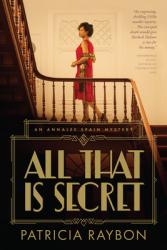
All That Is Secret launches the reader into a sobering event, immediate choices, and gripping consequences. Annalee Spain is a bright, compassionate professor of theology in Chicago who might be up to the task. A mysterious telegram, a conversation with her wise landlady, and Ms. Spain's empathy in her brief interaction with a young delivery boy propel Ms. Spain into decision. But a professor of theology has her own questions. Is this mystery worth risking a conversation with the God who seems so distant? The telegram's author weighs-in and the mystery ramps-up.
I found myself flipping back three chapters to re-read interesting relational intricacies and investigative details. The richly defined individuals, the character-specific language, and the locomotive pace create vivid scenes that kept me riveted. I highly recommend this book.
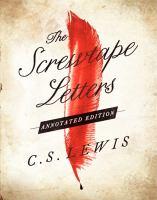
The Screwtape Letters by C.S. Lewis is a novel told in correspondence. Specifically, letters back and forth between a demon called Screwtape and his nephew Wormwood. These demons write to one another about all sorts of things, as families do, but mainly the humans. In this book, humans are the occupation of demons. Keeping them distracted, discontent, and leading them to misery is a merit of any accomplished demon. Readers will enjoy Wormwood's questions of "why must we do this?" or "is there a better way?" as he struggles with his mission to lead humans astray. Screwtape and Wormwood discuss many relevant issues of our own time, and the subject of spiritual warfare is present throughout. The Screwtape Letters is highly recommended for fans of Lewis as an introduction to more serious work or works on theology.
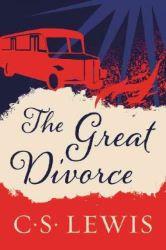
The Great Divorce by C.S. Lewis is a metaphysical novel following a bus tour through the afterlife. Strangers embark on wild journey through Heaven, Hell, and everything in between. As the story unfolds, characters realize every choice they make has a consequence, and their eternal destinies await them. Lewis speaks to universal experiences of grief, loneliness, and tragedy; his characters' stories are slowly told throughout the novel. Readers will enjoy the characters with varying backstories, explaining why they got on the bus tour. Follow humanity and hope unveiled in The Great Divorce. Next Stop: your bookshelf!
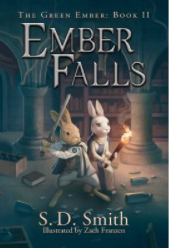
"Ember Falls" is an amazing book and a great sequel to the first book, "Green Ember." It has a great plot that keeps you reading until the end. It is a real page-turner and you will have a hard time putting it down! The illustrations are also amazing and help you imagine the scenes as they play out in the book.

S.D. Smith's "The Green Ember" is an amazing book with an exciting plot and interesting characters that readers will love! The book centers around two rabbits, Heather and Picket, who get thrown into extraordinary circumstances. I highly recommend reading this book, as well as the three others in the series and the short stories the author has also written.
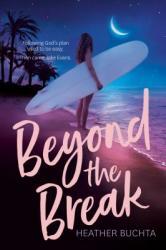
The main theme of this book is questioning can you still be a good Christian while still navigating romance. After a 17-year-old girl, Lovette's brother almost dies in a freak surfing accident she is banned from surfing and the ocean. Since her brother's accident, she has given her life to God and is a committed Christian. That is until Jake comes into her life. She now questions can I be a good Christian and am I placing Jake over God. She realizes that she wants nothing more than to surf again, that surfing is a part of who she is. That Jake is a part of who she is. I love this book because of the sweet romance and the drama between the characters. You won't be able to set the book down once you have started it. I highly recommend this book to any teenage girl.
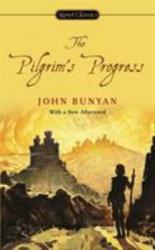
Really Good!
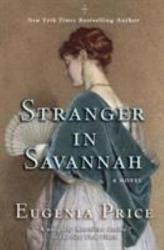
Stranger in Savannah is the final chapter of Eugenia Price's Savannah Quartet series and fills the niche of a Southern historical romance novel.
The novel follows the Browning, Mackay, and Stiles families and does an excellent job of creating drama related to the buildup of the American Civil War. While I do not often read romantic novels and the like, Stranger in Savannah feels very realistic thanks to its historic references. The setting of the Civil war and the air of political tension gave life to the drama, however, the underlying themes and Mark Browning as a character were all the more captivating. The book also drew me in with each characters' ambitions being intriguing and thoroughly fitting in major and minor plot points surrounding the setting and cast of the quartet. Overall, the novel was a fitting end to the series, and I would recommend not only this book but the entire Savannah Quartet to those interested in thematic historical romance.
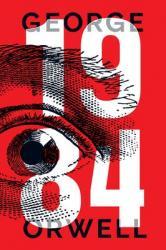
1984 by George Orwell is about a London where thought, speech, press is no longer free because it is all controlled by Big Brother and his Party. Every movement, gestor, spoke word is closely monitored by telescreens, hidden microphones, and cameras then reported to the Party. If you are found guilty of action or thought against the Party, you disappear. The Party controls everything. The protagonist, Winston Smith, a Party member who doubts the Party. The author does a fantastic job describing a place without freedom and the anxiety of living in it. Orwell makes the world come to life and makes you feel like it could happen. Personally, I feel like I could connect to the protagonist and the world. This book was quite unpredictable but easy to follow. All in all, It's a fantastic read, and I would recommend it with a 5 out of 5 stars.
Grade: 9
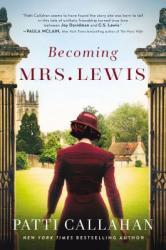
Becoming Mrs. Lewis, by Patti Callahan, is the fictionalized retelling of C.S. Lewis and Joy Davidman's unlikely love story. It is based around the correspondence between the two, their writings, and Joy's copious love sonnets. While C.S. Lewis is primarily known for his works of literature, his relationship with Joy was just as big--if not bigger--a part of his life as his work. The story is told entirely from Joy's perspective, with bits of correspondence sprinkled throughout her narration. Right out of the gate, Joy has an epiphany one night while living in a house in upstate New York with an abusive husband and two small sons. This holy experience leads to Joy's conversion to Christianity; then, searching for answers about faith, she comes into contact with the renowned author C.S. Lewis and they begin corresponding frequently. Eventually, Joy makes the choice to go to England because of health problems and her husband's abuse, and meets C.S. Lewis (whom she calls Jack) for the first time. The rest of the book is an agonizingly slow journey to their marriage, which happens under unfortunate circumstances at the very end.
I had awfully mixed feelings about this book. I was interested in learning more about the life of C.S. Lewis, but instead I received the sad, angsty story of Joy Davidman, and unfortunately, Joy Davidman--as portrayed by Callahan--is not a likeable character. She is impulsive in nearly all her actions, self-pitying and self-motivated (as exhibited by the fact that she leaves her two young sons in an abusive household while frolicking off to Europe), naive, obnoxious in much of her dialogue, excruciatingly desperate to be loved, and altogether irritating. However, I did like Jack's character, and overall there was some good character development. The plot itself was slow and redundant: dialogue dragged and nearly every conversation felt the same to me; I often found myself bored. It seemed like Callahan was running the plot in circles without ever achieving a climax. Also, as the story took place over several years in real life, Callahan was forced to glaze over several months at a time, never really going in depth about what took place in between Joy and Jack's meetings. As for the writing style itself--nothing to compliment. Callahan's syntax was unengaging and at times poorly executed, the story lacked imagery, and the use of British slang seemed forced, coming from an American author. Over the course of the book, Joy's feelings for Jack develop more quickly than his for her, and I couldn't help feeling disturbed by her physical attraction to a man 17 years older than her. Callahan should've backed off on Joy's excessive, out-of-the-blue thoughts of physical desire--they were disturbing and took away from Jack and Joy's friendship.
I believe the love story of C.S. Lewis and Joy Davidman would've been best left alone. While Callahan's novel is historically accurate, the fictionalization of intimate details and dialogue that belonged to the real Joy and Jack in their time did not sit well with me. I appreciated Callahan's inclusion of literary history--especially learning about Jack's life and how
it influenced his writing--and the last fifty pages of the book redeemed itself slightly, as the characters' growth was revealed and some important life lessons shone through. Occasionally I was immersed in the story and
rooting for Joy, but the mundane, repetitive, boring moments overshadowed those, and Callahan's Joy was not the female character I'd hoped she would be. I wouldn't call this book a romance, because it's simply desperation on
one side and friendzoning on the other until a dire situation wakes up the latter party to reality. Becoming Mrs. Lewis did not do it for me, and I don't recommend it unless you immensely enjoy poorly-written, many-liberties-taken fictionalized accounts of famous historical figures' lives. I believe Joy Davidman and C.S. Lewis were probably wonderful individuals in reality, and I wish Callahan had done them justice.
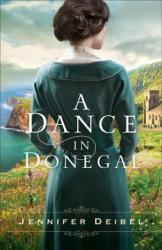
In her debut novel, A Dance in Donegal, Jennifer Deibel paints beautiful pictures with her words.
I was able to experience the sights, sounds, tastes, and smells of Ballyman, Donegal with Moira Doherty who travels to her mother's homeland from Boston to teach school. Ballyman is a small village in Ireland that is shrouded in superstition, and rumors about Moira's mother.
This novel is a beautiful story of grace, love, and forgiveness that is amust read!
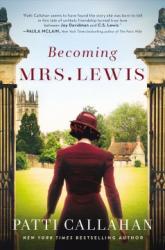
f you are a fan of C.S. Lewis, and perhaps were introduced to Joy Davidman through the movie, "Shadowlands", this in-depth look at her life, and struggles before she first began her correspondence with Lewis. Already a prolific poet and writer, Davidman was extremely well-educated and had been a child prodigy. This is an evocative account for her search for God, her quest for peace during a strained first marriage, and ultimately, coming to terms with the illness that took her life after finding fullflling love with C.S. Lewis. The book is well-researched, but is a novel that is written in the first person.
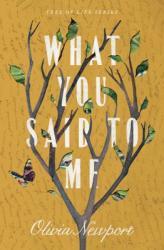
This fourth in the Tree of Life Series by Olivia Newport is another unique story, weaving present day characters with prior generations. Meet Tisha, a 15 year old trying to find positive family relationships amidst her troubled life which leads her on a challenging and rewarding search. Set in Canyon Mines, this small mountain town unearths unexpected historical documents of her ancestors that just might change Tisha's future. It is an excellent read for both history and genealogical fans.
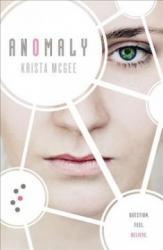
"Anomaly" a Christian dystopian novel grabs a reader's attention quickly. Thalli, the main character, is being chased by The Ten, a group of scientists who are trying to annihilate her. According to The Ten, Thalli is considered an anomaly and is dangerous to their current society. Through many trials, she has learned about the Designer from a friend named John. He shares with her that she was made to be like this and that she has been being lied to her whole life. She then realizes that she needs help; help that cannot come from humans. She needs the Designer's help. With some help from a few friends, Thalli tricks the ten scientists into thinking that they have cued her, but it doesn't work. They find out that she was tricking them. The Ten then decide to annihilate them all. As Thalli bravely volunteers to go first, her friends try to rescue her. Will she make it to freedom or will she be stuck in The Ten's grasp and never make it out?
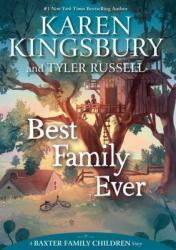
Well-known author, Karen Kingsbury, has partnered with her son, Tyler Russell to write the first book in a children’s series about the Baxter children. While millions of adult readers have read the stories of the Baxter family, this chapter book tells the stories of the children’s growing up years. There is Brooke - the perfect oldest child, Kari – an amazing soccer player, Ashley – an aspiring artist who is free and uninhibited, Erin, and Luke. This is the story of their strong Christian faith and their family loyalty.
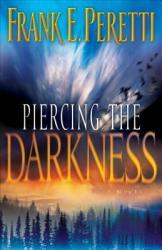
It’s weird how something that was done so well the first time loses all its magic during a sequel. I absolutely loved This Present Darkness , as I felt it accurately captured the invisible war of the spiritual world while also providing a gripping thriller in the human realm to keep the action moving forward. I was not impressed with the follow-up book, Piercing the Darkness. If it was a separate story with separate characters, I might have gotten into it more, but as it is, the tie-in to the first book seemed sloppy and almost unnecessary.
Almost every part of This Present Darkness that I thought was amazing seemed copied into Piercing the Darkness, but without the stakes or “oomph” to make the plot even semi-interesting. I think the reason for this was that most of the subtlety was gone from the characters. It’s a little more terrifying when you learn that normal, everyday people are being controlled by demons, but when a fully-functioning Satanic cult is your antagonist, it just seems like the author isn’t trying that hard. Of course, there wasn’t much of a reason behind the “evil side’s” plans in this book, other than to ruin a Christian school. At least in the original book, a whole town was at stake.
Perhaps Peretti was pandering a bit too much to his core demographic here, but it almost seemed like all the characters were caricatures, with no ambiguity to make the reader wonder whose side they were on. I won’t even mention the few plot holes I noticed, some of which came to light during the trial portion of the plot since it’s pretty apparent how everything’s going to turn out from the beginning. Good triumphs, evil is defeated, blah blah blah. In short, this book reads more like a sermon. The thrill is gone.
A sub-par follow-up to a fantastic book, I give Piercing the Darkness 2.0 stars out of 5.
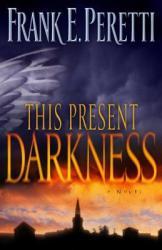
Back in high school, I had to read this book as part of my Religions class and thought it was pretty good. As I have been preparing for writing The Slumberealm Gambit, I decided to give This Present Darkness another read so I could recall how Frank E. Peretti combined the fantastical spirit world with the real world. For a book written in 1986, it’s aged surprisingly well, even if the demise of the newspaper and the rise of constant contact via cell phones would make this kind of book set in modern times a hard sell. Even so, I honestly wouldn’t mind if someone adapted this book into a movie, as the plot is thrilling and the action is top-notch.
Strangely enough, one of my qualms with this book is with its formatting and proofreading. There were a few missed typos, and the right-align text didn’t seem as professional as I would have hoped a widely-printed book would be. Regarding content, though, I wonder if the preacher side plot could have either been cut or enhanced so that it would have had the same intensity/focus as the newspaper main plot. Still, by the end of the book, the exciting conclusion is a result of all the pieces being put in place during the somewhat long buildup.
Some people may debate whether angels and demons are real, but this book certainly gives a fantastical look behind the curtain and imagines these beings in elaborate detail. The angels are all quietly patient, while the demons are gruesome and horrifying. The mixture of fantasy imagery and real-world situations is something I hope to soon accomplish in my own writing style, and this book merely reinforced how awesome it was when I read it for the first time more than a decade ago.
An action-filled and thrilling look behind the spiritual curtain, I give This Present Darkness 4.5 stars out of 5.
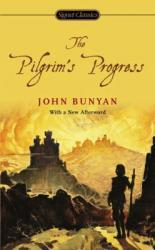
I distinctly remember my parents reading this book to me when I was a child. Decades later, I decided to re-visit it and read it for myself. I don’t know if it was an abridged version or a simplified re-telling appropriate for kids, but this was not the book I remember from my childhood. Sure, the action bits were still there, like the fight with Apollyon, the Slough of Despair, and the suicide discussion in Vanity Fair, but there was way more dialogue than what I recalled of the story. Not to mention the verbiage/wording seemed more along the lines of a King James Bible than of a fantasy setting.
Sure, I’ll concede that, for 1678, this was a groundbreaking piece of fiction, and perhaps the first piece of successful fantasy ever written, but it hasn’t aged entirely as well over the years when compared to its source material. There are undoubtedly little lessons and morals present here, but they are often buried between and among diatribes from the primary and supporting characters. Furthermore, I was only loosely aware that there was a “Part 2” to the main story of Christian’s journey. After reading the journey of Christiana and her children following in Christian’s footsteps, I can see why I never heard that part when my parents read it to me: there wasn’t much new material in it.
When I picked up this book to read for myself, I was trying to confirm that I could use it as a framework for my Slumberealm trilogy. After reading through it, I realized the apparent references to concepts, ideas, and people is more indicative of the style I used for The Fluxion Trilogy . There’s not a lot of subtlety in the character names or destinations present in The Pilgrim’s Progress. I suppose that’s part of the charm of such an allegory, though.
A groundbreaking piece of fantasy that hasn’t aged well over time, I give The Pilgrim’s Progress 2.5 stars out of 5.
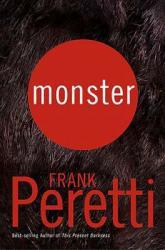
One of the challenges of the Christian author is being able to craft stories and characters that share their beliefs, but without being too heavy-handed about it. In Frank Peretti’s Monster, the author mostly succeeds, providing characters that can easily be identified as Christian, but also exhibiting the traits of normal humans instead of straight-up caricatures. The main plot of this book was only tangentially related to an argument against evolution, so that was also a plus. Still, the way the book was put together, it was clear where the author’s bias was.
While some people might not appreciate the Christian undertones in this thriller, my qualms with it are more structural. Following a few different characters after a woman is abducted by an unnatural beast, the mystery of the disappearances and killings unravels to reveal a semi-plausible explanation. Unfortunately, the man and wife pair that are introduced at the start of the book are more annoying than likable. Ergo, when I followed the woman’s ordeal in captivity, I could not sympathize with her plight because her actions and reactions were so off-putting at first.
In the end, Monster is still a passable—if perhaps boilerplate—thriller. I did appreciate the realistic explanation for the fantastical elements of the story. I also found it somewhat refreshing to show a character who opposed the common scientific view of evolution just because everyone else thought it was true. For an audiobook, the author’s narration was filled with just the right amount of emphasis, which is to be expected. However, with so many short scenes and quick cuts between them, his reading could have stood to have a little bit longer pauses between sections in order to give the listener a better sense that the scene was changing from one character to another.
A passable thriller with semi-subtle Christian undertones, I give Monster 3.0 stars out of 5.
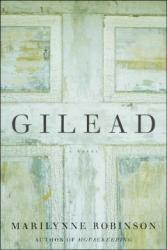
I feel the same way about this book as I do certain of my favorite foods: I absolutely love it but I can understand why someone else wouldn't. The very distinctness of this book is what makes it so lovely. If you're looking for an action-packed page-turner, keep looking. This is a book to be savored.
On the pages of Gilead, I was confronted with the transcendence, the miracle that is everyday life. The author beckoned me to see the smallest detail of existence as a thing to be cherished. I found myself deeply moved by the quiet steadiness of a man who had lived in one small, inconsequential town his whole life. He wrote no great books, and made no national waves, but he was faithful and content. What a concept! Yet he fought real battles! They were the struggles he waged in his own heart. For instance, he fought hard to love the wayward son of his best friend who had caused the family so much grief for decades, and had now returned. But in the end, he rose as a victor, and gave a blessing so moving it could change the course of a life. He had struggled for decades with loneliness. While his best friend had a household of eight kids, he had remained wifeless and childless for years after his first wife had died in childbirth. But this eventually served only as a platform to make him a stronger and more sensitive man--a man able to love more deeply because of all his heartache. All of this is described so skillfully, so carefully, that the reader cannot help but love all that the author loves. And what else is a good story for if not to capture the affections?
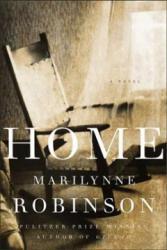
This book is not some trite, feel-good, cliche-gushing, sappy-ending kind of book. I'd say rather, Robinson portrays a little love for Flannery O'Connor in her writing. But a reader must remember that an author writes this way, not always to be dark for darkness sake (like Poe), but to sketch the world as she believes it really is. Home portrays the world as a messy place, with the messiest of all places on earth being the human heart.
Jack Boughton has wandered the world for 20 years as the wayward son of a faithful pastor but returns back home, just before his father passes away.
Jack relives much of his childhood as he returns to this home he has been gone from his whole adult life. Here he must face the remembrance of not belonging to something lovely, something he was and still is cut off from. He sees how a darkness in his heart has kept him from the light, the warmth, the fondness of family love. He has been a heartache to his parents and this he hates. But hating oneself is not the same thing as redemption; neither is regret; neither is simply making a physical trip to one’s childhood home, nor caring for your father for the last few weeks of his life. Reminiscing with your little sister and visiting all your old haunts, no, none of these things alone makes for redemption. It is much more complicated than all of that, and can only happen in the heart. Like many good books, the reader is not given a pat, 5-step plan. The path is left ambiguous. But we are only given hints. Jack whispers one of the deepest longings of every human heart, when he says to his father under his breath, “Bless me, even me also, O my father.” (From Genesis 27:34)
There is no tidy reconciliation scene between father and son, although Jack at one point tries to fake a change in his beliefs to ease his father's last days, but his father sees right through it. However, before the book ends, Jack receives a blessing from his namesake, his father’s best friend, and this is where the unexpected power to both forgive and to claim a promise, pierces through the binding darkness that Jack on his own could never have escaped.
A father who loves unconditionally a wayward son, and a life-long family friend who intercedes between a father and a son who love each other but can't understand each other, these two things are among the strongest forces on earth.
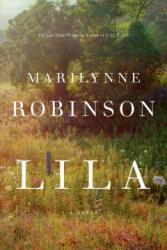
"Spread your wings over your servant, for you are a redeemer." Ruth 3:9
What happens when an old man, broken from years of suffering, looks into the face of a feral woman who has wandered into his church for shelter? In this moving story, he sees humanity in her face. He sees her loneliness and her sin-ravaged state, but he can see beyond that to a human being, near ruined, yet not beyond the hope of a redeemer. She is a person in need of compassion and comfort. He offers her a home for her world-weary frame. He marries her.
The story of Lila finds its poetic power in Robinson's unmatched ability to empathize with the human condition. Each page of this story is dripping with compassion and sympathy. The genius lies in how the very fabric of the story weaves a picture of the deepest desires of every human heart.
Lila, at her core, is a person in desperate need of protection and affection.
Here Robinson proves herself to be a master of symbolism. When a shawl was spread over the sickly, neglected, and dying toddler Lila, by a wretched woman overcome by compassion for an unloved child, this shawl and this memory become the defining features of Lila's life. And later, as a forsaken, hopeless, and forlorn grown woman, who has now lost the one person in the world who ever cared for her, Lila finds again someone spreading his dark suit jacket, the one he preaches in, over her freezing shoulders as they walk along the road. Lila says, looking back on that moment: "She thought it was nothing she had known to hope for and something she had wanted too much all the same." A covering, a home, protection. And again: "But if she had prayed in all the years of her old life, it might have been for just that, that gentleness. And if she prayed now, it was really remembering the comfort he put around her, the warmth of his body still in that coat. It was a shock to her, a need she only discovered when it was satisfied, for those few minutes." This story brings to life the theme that we often don't even know what to pray for and that mercy is so much bigger than our imagination.
Robinson is an author who truly understands how to express suffering, estrangement, loneliness, and courage in a breath-taking and lovely story of grace and redemption. She has a deep perceptiveness in the way she portrays the various motives that control the human heart and she writes with forthrightness and blazing accuracy. Read an be changed.
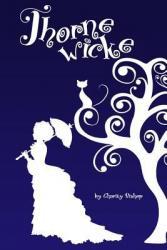
Speculative fiction at its most fun and haunting in the Victorian period, with that little hint of Steampunk! Seventeen year old Evangeline is off to stay with her Aunt Henoria in the old house of Dragonspire, located in the northern wood and filled with things that like Evangeline herself...are not quite what they seem. Her life teeming with questions about these new mysteries, and her newfound powers, she tries to pry the questions out of her estranged aunt. And who are the Musgroves, why is the house so strange, and what is going on with the northern wood? This quick read is unique and comes from a local author, has the flair of Gothic Horror with a speculative fiction/steampunk twist in a Christian genre. Say that fast ten times. Basically, this is something fresh and new and I appreciate Ms. Bishop's humor and understanding of the Victorian era and what it takes to write good speculative fiction.
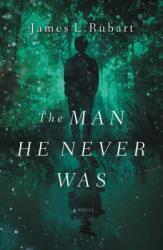
James Rubart has been one of my favorite Christian authors for a long time, and his latest, The Man He Never Was, does not disappoint. This is not just “a modern re imagining of Jekyll and Hyde,” it is a story of one man’s radical journey to discover what true love really looks like and the freedom we find through redemption.
Torren Daniels is a regular guy pursuing the career of his dreams. A football star with a loving family and everything to lose. He lives for the game, taking out his anger and frustration like most guys on the football field, through the game. But one day when he goes to far, his perfect life and career fall apart and he is left with nothing but his anger, frustration and rage at himself and his family.
Fast forward eight months, Torren has disappeared and everyone, including his wife and family, believe he is dead. Until one day he shows up in a hotel room with nothing but his wallet, the clothes on his back, and no memory of his life for the past eight months. But one thing he does know, he has come back different. More different than he has ever been before. The anger and frustration he has dealt with all of his life, seems to be gone. Instead being replaced with love, patience, and kindness, but are these changes truly real or are they simply an illusion?
What follows in the preceding days, is not only a physical journey to discover what happened to him, but a spiritual one that reveals the struggle of good and evil we all face inside ourselves and the redemptive freedom we can experience when Christ’s true love is set free within us.
Rubart’s storytelling gets down to the issues in a fast-paced way that does not dwell on flourishes and world building, as much as it does on character development. Torren is not a likeable character especially at the beginning of the book, but as the book progresses, and he goes on this journey, we see how the other relationships in his life, shape how his character responds. The other character’s in the book likewise are shaped by, and changed by, how his character responds to them, especially Torren’s wife.
Rubart’s story is highly complex, and as the story unfolds and the layers are peeled back, we see the struggle that is really going on inside Torren. Rubart approaches issues such as broken relationships, anger, loss, forgiveness, and abandonment in a way that is both realistic and extremely relatable. These issues and how they shape his character’s lives, also help shape the timber and tone of the overall story and come to a head in the conclusion of the story in an important and life changing way.
Rubart’s stories have always been complex and interesting. But one of the things I have always loved about him as an author and continue to love about him, evident in this book and the others I have read, is the way he has a way of presenting spiritual truths in a highly complex and original way but within the real world and in a way that is not overbearing, and is extremely relatable. The Man He Never Was, does not just present an updated version of the story of Jekyll and Hyde but takes the story and makes it real in a way that I never considered or imagined. Rubart takes the characters of Jekyll and Hyde and presents them as allegories as he explores the battle of good versus evil that is constantly going on inside each one of us.
Thank you to Netgalley and Thomas Nelson Fiction for an E-Arc of this book for review. This book is out February 20 but you can put your copy on hold today!
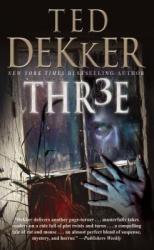
Thr3e by Ted Dekker (great title after reading the book) is one of the greatest murder mystery novels out there. The book begins with the main protagonist, or so it seems, Kevin Parson. He receives a phone call from a psychopath in Killer named Slater saying that he has three minutes to confess his sin to the world or else his car will blow up. This is just one of the many events that take Kevin, Samantha, his greatest friend, and Jennifer, an FBI agent, through a world of mystery and motives. The twists and turns are the main attraction of this novel, as the reader won't expect what comes next. Character backstories also play a gigantic role in this novel, and all of them are well crafted to fit the plot. Anyways, I would recommend it to anyone willing to take the time to read a book.
Grade: 8
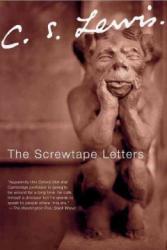
Perhaps the first documented fictional exploration of spiritual warfare, The Screwtape Letters is an expertly crafted examination of what the enemy of our souls is plotting. The reader is given insight into one side of a correspondence between two demons of differing influence and rank, thus providing a “behind the scenes” look at what the enemy is plotting and what they consider to be a victory for them. At moments, it can be difficult to follow along since the context of Screwtape’s “enemy” is really the “good” side of the spiritual battle. Either way, C.S. Lewis has crafted a brilliant satire about how little humans understand of their spiritual lives.
While I wouldn’t necessarily ascribe The Screwtape Letters to pure theology, there are plenty of eye-opening and thought-provoking statements in Screwtape’s letters to his nephew. From the demons’ acknowledgment that pleasure is of God’s design but overindulgence in pleasure is in their realm to the ever-constant battle to bring humanity’s spiritual fervor into the “lukewarm” category, many of the topics covered in this book are still applicable today. In fact, an astute reader can pick up exactly where the demons have gained victories in today’s society filled with apathy and spiritual malaise.
My biggest qualm with this book is that it wasn’t longer. Lewis unquestionably had the creative spark to package theology in an entertaining context via books like this, so I would have liked if there were more letters included in the set to stir up more conversation and induce more moments of reflection in our own lives. If someone were to write the unauthorized sequel to this book that could do so, I would certainly read it in a heartbeat.
The greatest example of writing from an antagonist’s perspective, I give The Screwtape Letters 4.5 stars out of 5.
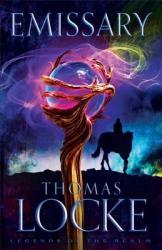
A fantastic world of adventure and legions come alive. Elves and dragons and ethereal powers colliding together in this fast paced journey where EVIL again is trying to 'take over'. It was an easy read and kind of a fun romp. A 'page turner' as they say that left me with a desire to get the next book quickly. It's also another '1st book' so it makes it easy to know what to read the next time. (check out my other "1st books" in the staff reviews. The main character has a noble upright spirit in him and his quest in part is about him becoming all that he can be. Many friends join him along the way and he soon learns that without them he will fail. If you like The Lord of the Rings series; you'll probable like the books that I read.
My curiosity is up about these reviews - so If I could get some feed back (at least 7) - I'll tell you the next "best fantasy saga", I have found, after the Lord of the Rings.
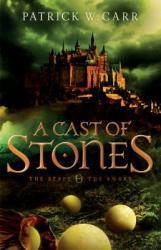
This book starts out really slowwwwww, but hang in there 'cause it starts picking up speed about a third of the way through. Errol Stone lives in a barrel of ale most of the time, he's an orphan and the one who was raising him was killed. It's a hard luck story that lifts you up at the end. He discovers he has hidden talents and true friends that help him overcome life. He has to fight through with work and is discovers a great adventure to live. Most of the stories I like are about people that overcome the odds and learn how to live uprightly. This is another '1st book' and I'm looking forward to the next. I read books that are "clean" from bad language and lustful sex. There's plenty of those, no challenge to find them, so I seek out those that are not. A little Romance and a Noble Spirit, mixed into a great Adventure are what I enjoy. The Return of Sir Percival and The Castaways of the Flying Dutchman are other '1st books' I have read, reviewed and enjoyed recently.